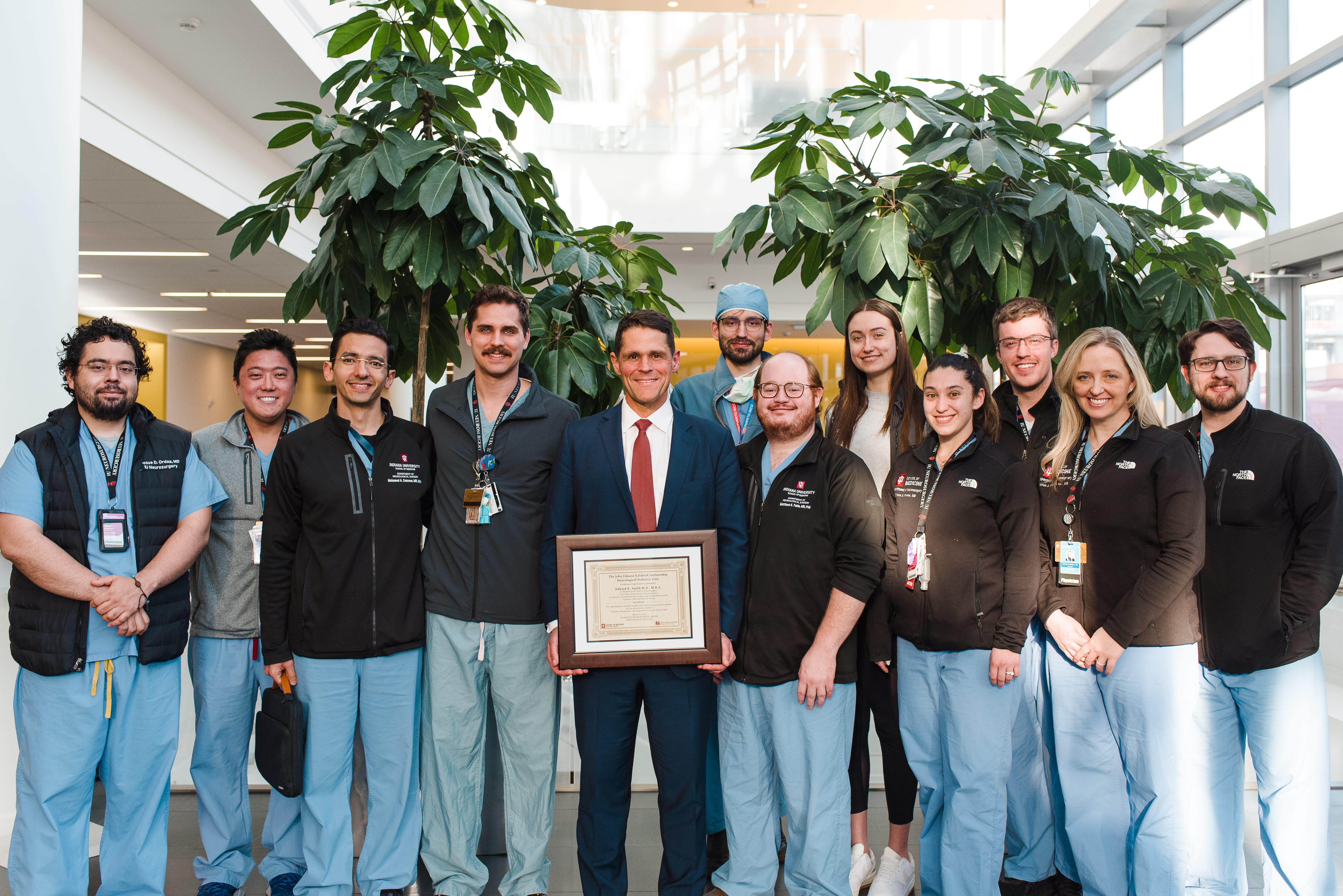The Indiana University School of Medicine Department of Neurological Surgery, under the leadership of Mitesh V. Shah, MD intends to lead Indiana, the Midwest and beyond in the care of patients with nervous system disorders using state-of-the-art technology and advanced techniques in the operating room and clinic—doing so in a compassionate and caring environment that emphasizes quality and safety. Neurosurgery clinicians, researchers and educators at IU School of Medicine are at the forefront among national leaders in how they treat patients, investigate new therapeutics and train the next generation of neurosurgeons.

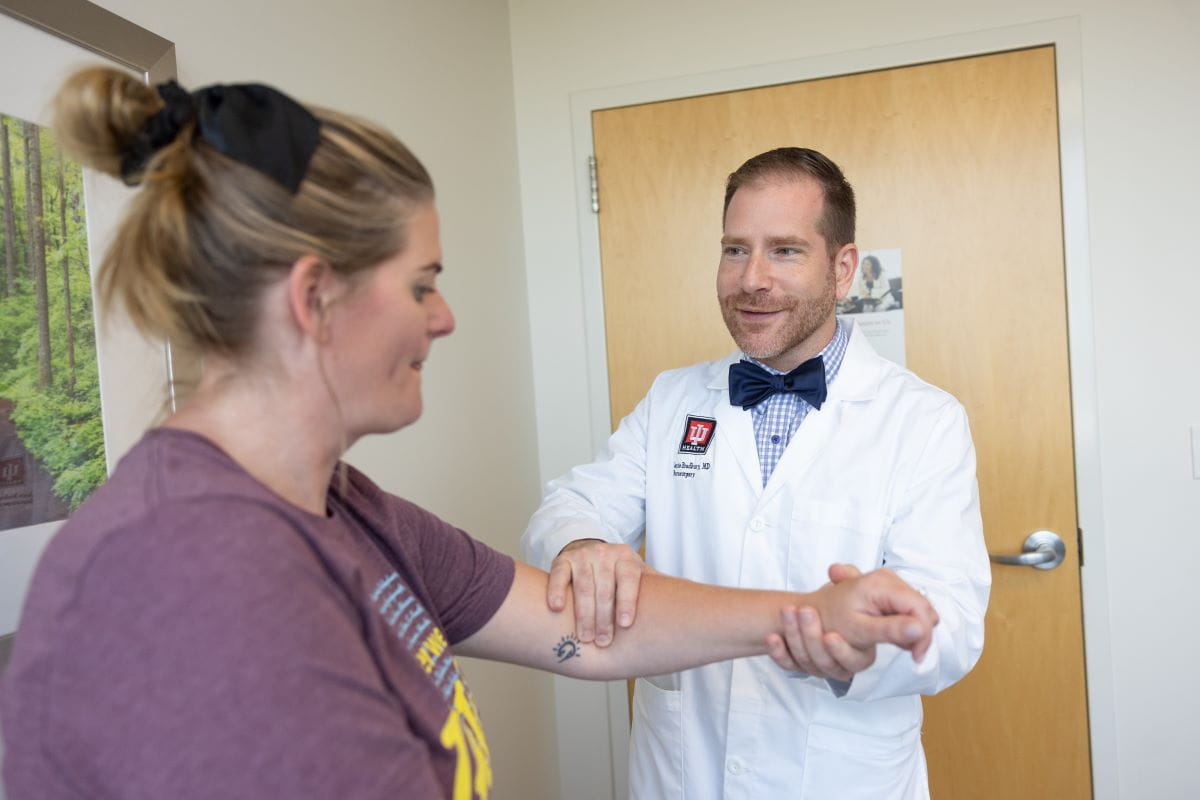
Clinical Care
Department faculty are advancing the health of adults and children with neurosurgical disorders with a unique, patient-first approach to brain, spine and nerve care.
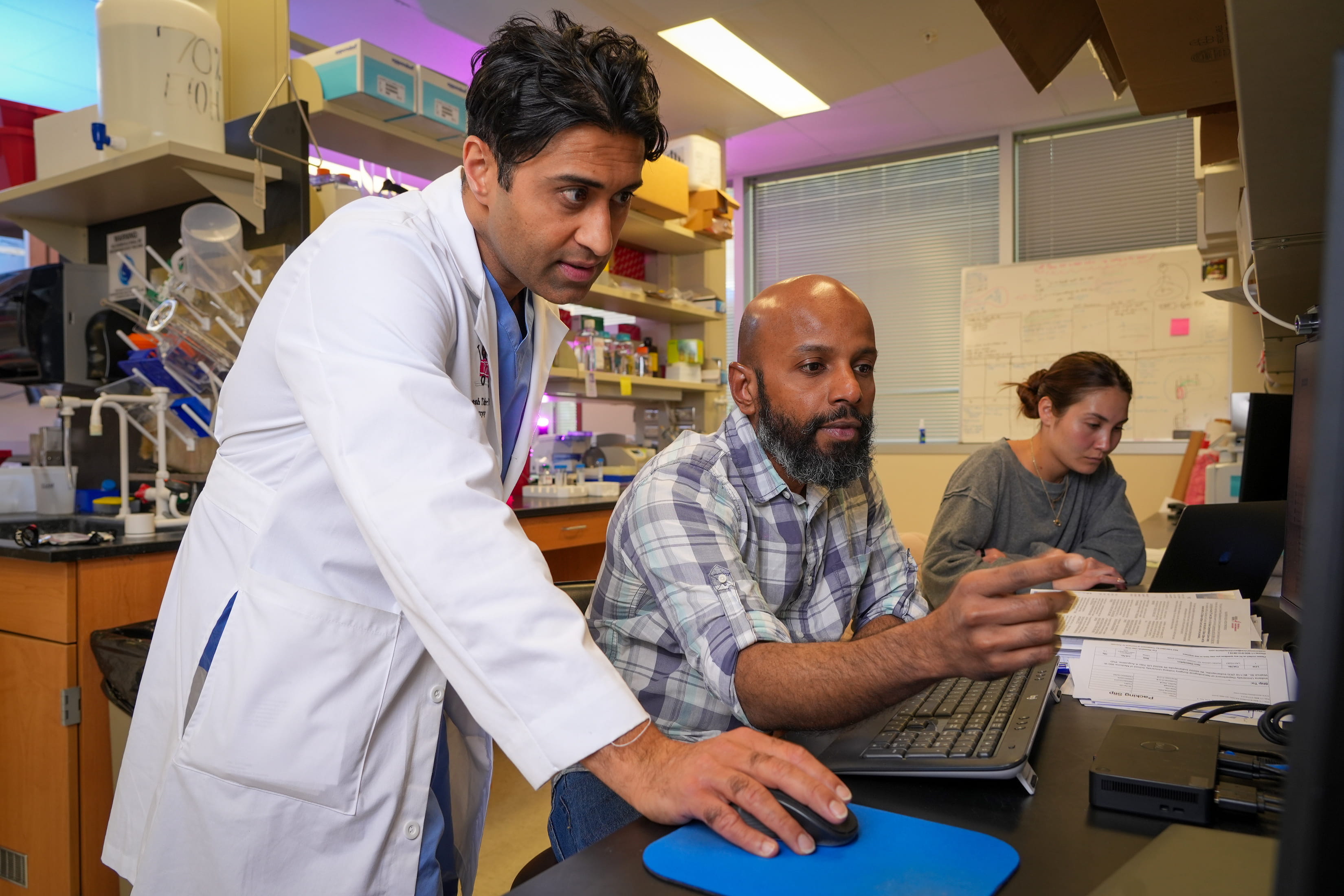
Research
Through clinical and laboratory research studies and more, neurological surgery faculty researchers dedicate their life’s work to advancing treatment solutions for patients.
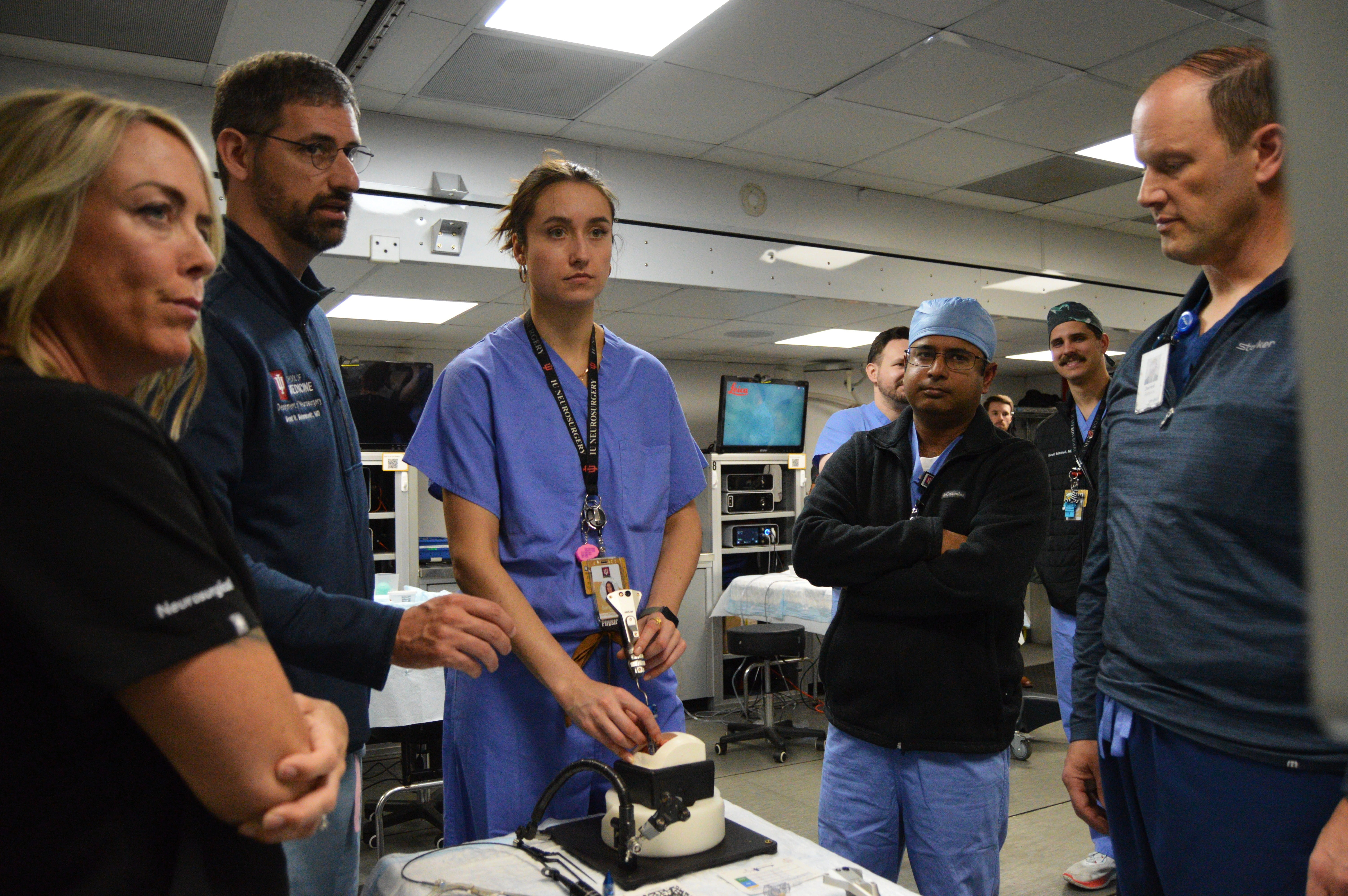
Education
Internationally renowned faculty neurosurgeons at IU School of Medicine provide training to medical students, residents and fellows pursuing subspecialty expertise.
Recent News
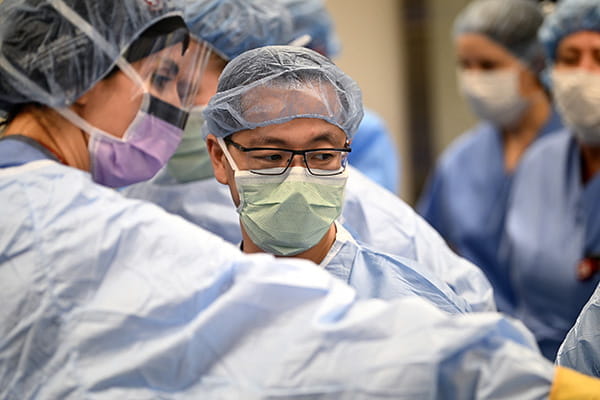
IU neurosurgeon revolutionizing hydrocephalus care for children with innovative research
Jason Chu is part of a team of researchers in the Department of Neurological Surgery leading efforts to develop new, safe therapies for patients of all ages living with the life-threatening condition.February 18, 2026
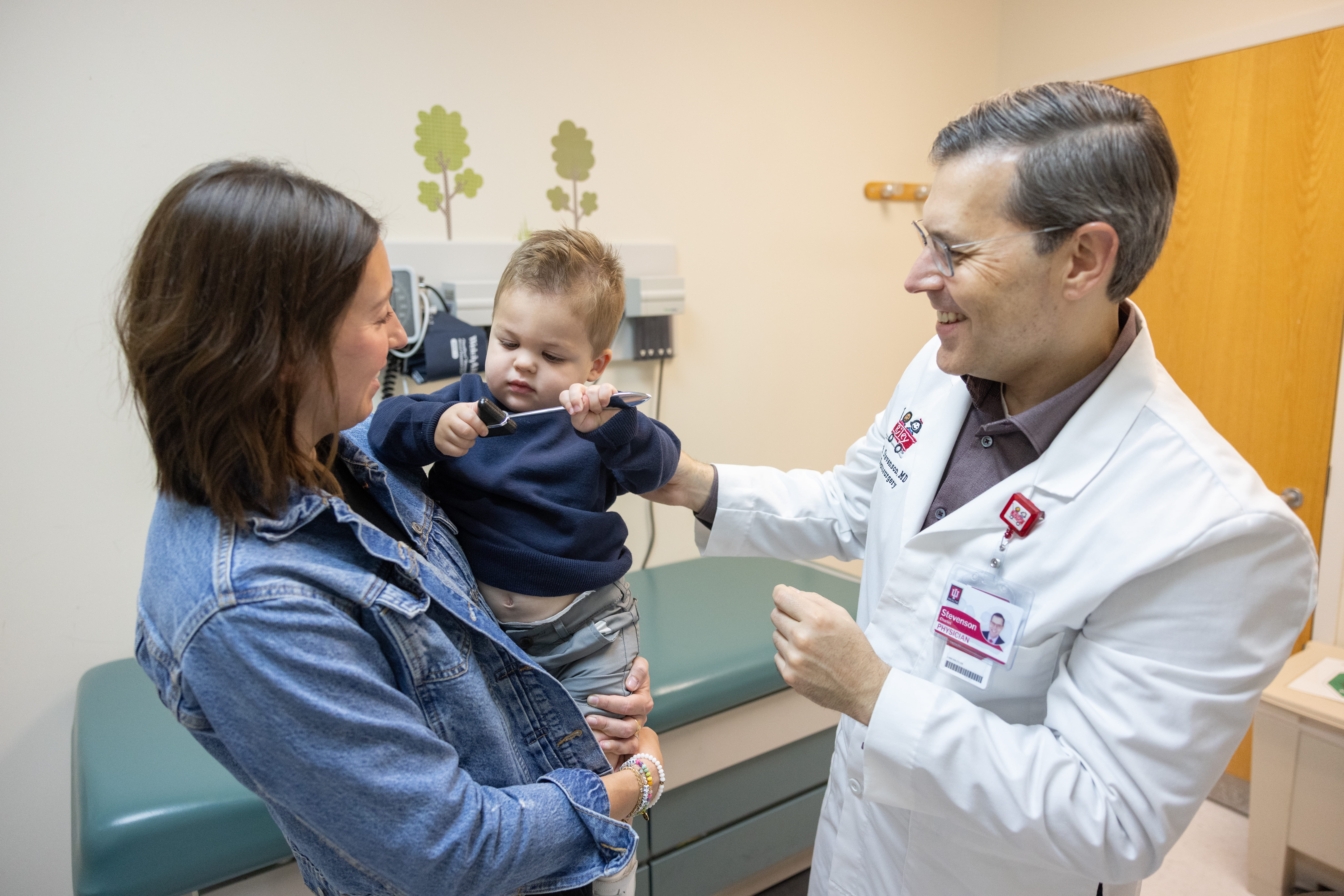
New division chief devoted to building ‘pediatric neuroscience center of excellence’
When he’s not meeting with families in the clinic or performing life-changing procedures in the operating room, Charles Stevenson, MD, dedicates his efforts to advancing patient care through cutting-edge research.November 04, 2025
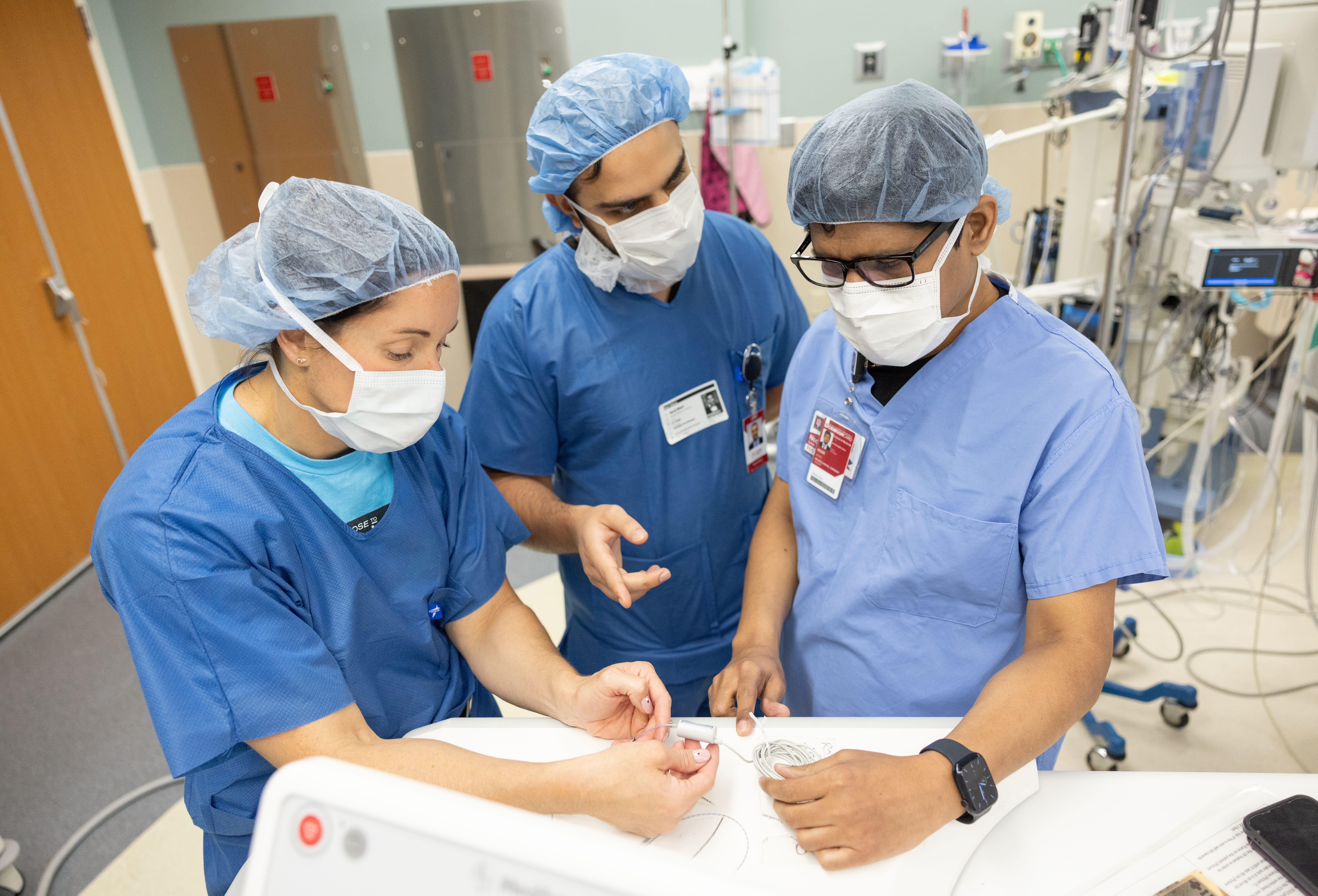
October 23, 2025
